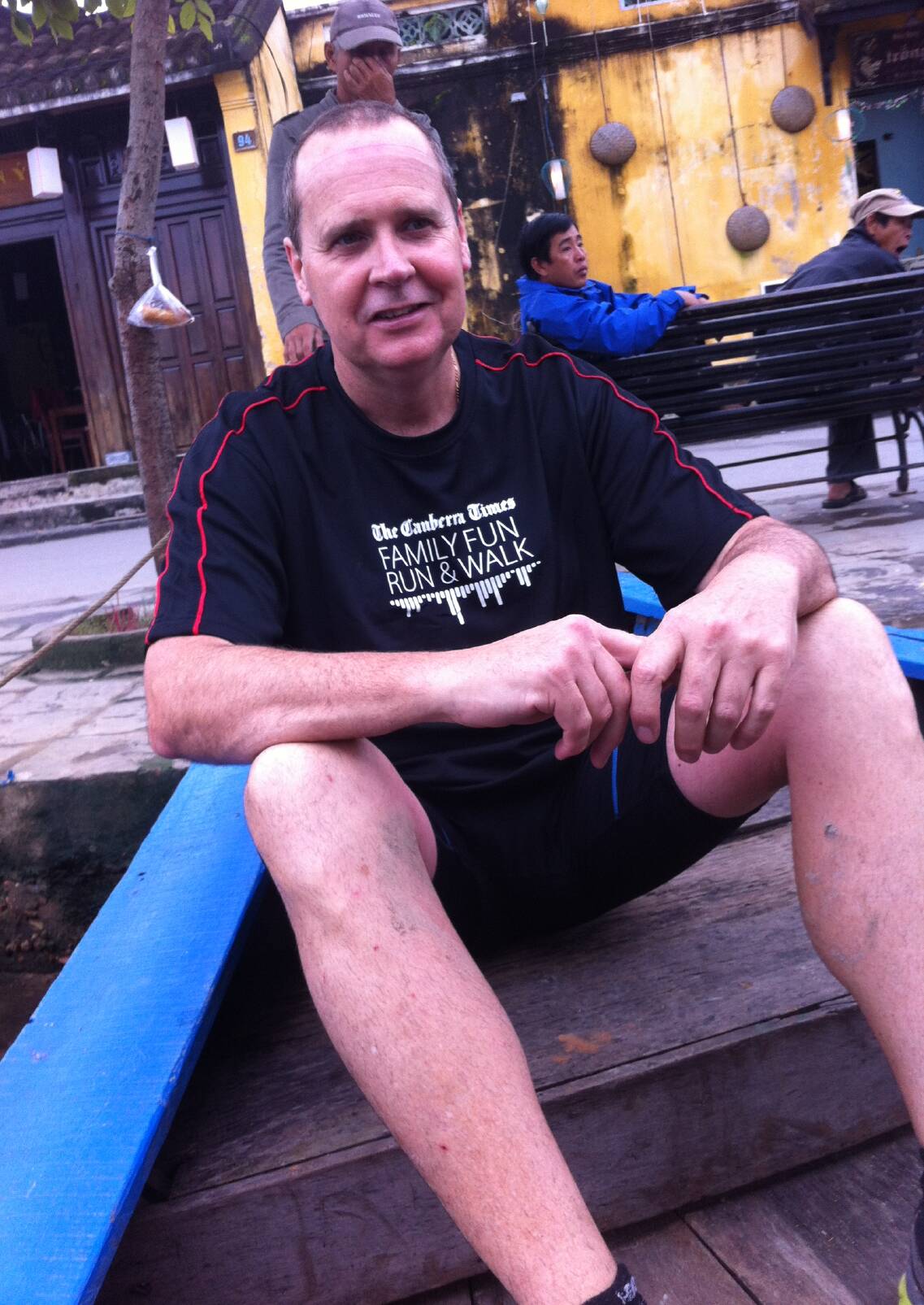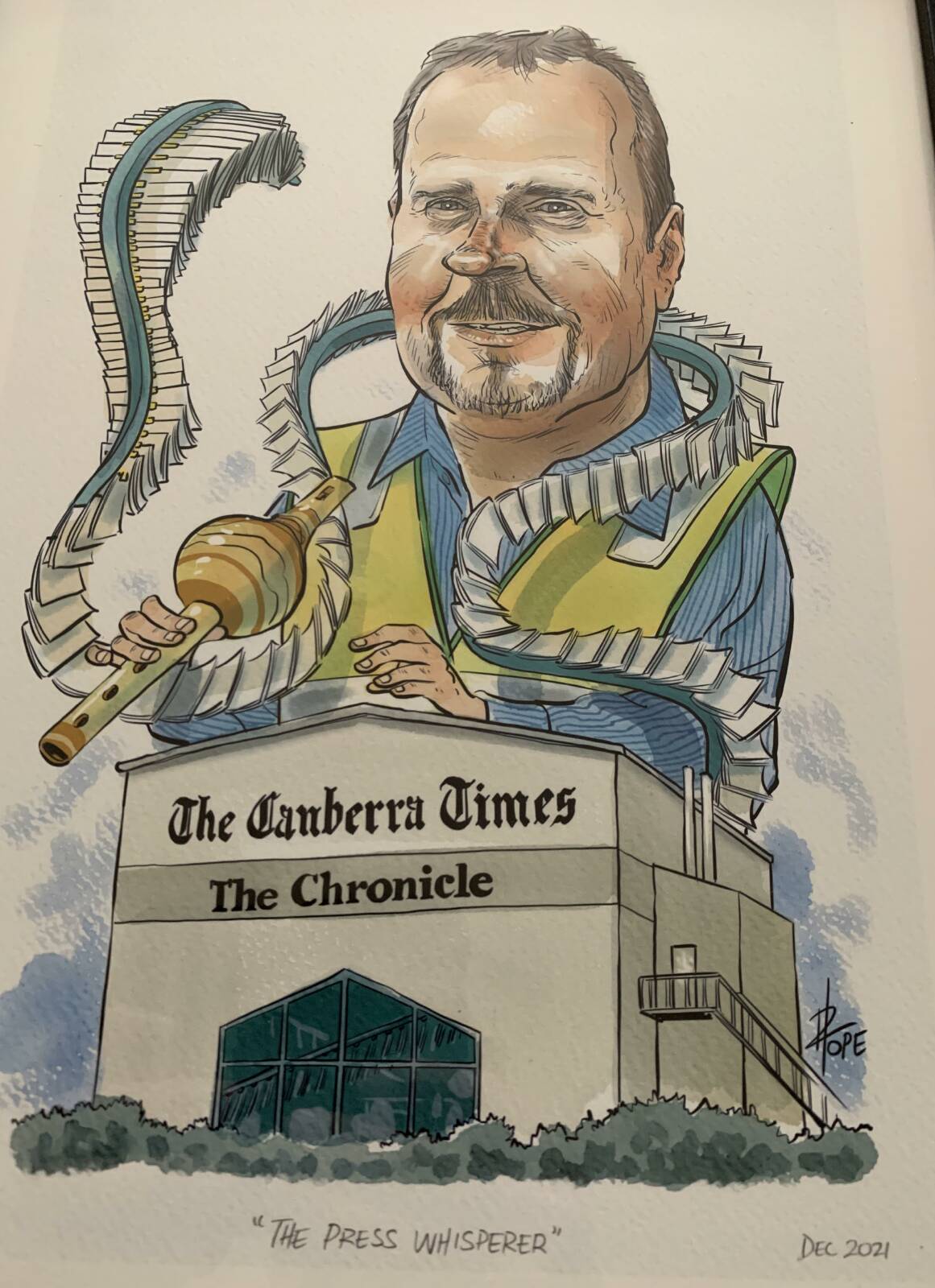A Canberra man who died having got within just 100 metres of the summit of Mount Kilimanjaro has been remembered for his integrity and dedication to the newspaper industry.
Jon Clarke, the former head of printing for The Canberra Times and ACM, died suddenly on February 29, aged 60.

Two years into retirement, he was on the trip of a lifetime in Tanzania when he was struck with altitude sickness.
Son Lewis Clarke said his father had last been in touch on February 25, and by the end of the week, the family had been waiting to hear from him after several days out of range.
The call, when it came, was not what they were expecting.
They were told that Clarke was on the seventh day of the climb when he began to have difficulty breathing.

"Apparently he was only 100 metres from the top, and he told them, 'Just get me to the top', but they said he had to move down."
Clarke ultimately succumbed to altitude sickness and died.
This is a relatively rare occurrence; while between 30,000 to 50,000 ascend Mount Kilimanjaro every year, on average just three to 10 people die each year, usually of altitude sickness.
Lewis said his father had died doing what he loved.
"I hope he was enjoying it. He trained very hard for the walk, and I think he was excited to show us pictures when he got back," he said.
Clarke ran ACM's press operations during one of the industry's most complex transformations.
Born in 1963 in Cootamundra, Clarke had newspapers in his blood. His father, Barry Clarke, was the longest standing editor of The Cootamundra Herald, from 1965-1997.
Jon Clarke's career overlapped with his father's for a few years in the 90s.
He had met his future wife, Jenene, while on a Contiki tour, and the pair travelled extensively and lived for a time in London, before returning to Australia to settle down.
Clarke started work as a prepress operator at The Canberra Times in 1993.
By the time he retired in 2021, he had worked in almost every facet of newspaper operations.
While his empire largely involved rumbling presses, ink and newsprint, he oversaw large-scale IT projects and managed outsourcing projects, all with an award-winning press team behind him.
Staff who worked at the Fyshwick site remember him as a pragmatic figure in a high-vis vest, always ready to sort out a problem or explain a process.

He was there when the latest version of then-cutting-edge presses were installed, and took great pride in showing them to visitors, often running tours of the vast press hall for wide-eyed new staff and Canberra Times subscribers.
Lewis, the oldest of three children, remembers his father taking calls late at night, from panicked press operators dealing with technical issues.
More often than not, he would drive into Fyshwick and sort it out himself.
He was fundamentally devoted to getting the paper out, and was often on the phone to editors advising of deadlines or sorting out last-minute page changes.
And when the time came for some of the presses to close in 2020 in the midst of COVID lockdowns, he had the difficult task of overseeing the dismantling of the vast machines he had been so proud to run.
By then, he was well and truly ready for retirement.
He had a lifelong love of travel, and he and Jenene, who were married for 31 years, had taken their three children on several overseas trips over the years, including to China, Vietnam, Fiji, Cambodia and Hawaii.
It was a running joke in the family that no matter where he went, whether it was to the local shops or halfway across the world, he would inevitably run into someone he knew.
The rest of the family would perch on street corners, at train stations, traffic lights or in the car while Clarke had a good yarn to whoever it was.
And as a seasoned traveller, it happened a lot.

Clarke was on the trip of a lifetime when he died last week.
Or, rather, the trip of his best mate's lifetime; Clarke was only too happy to oblige when his oldest school friend asked him to accompany him up Kilimanjaro for his 60th birthday.
Lewis Clarke said his dad had trained and prepared for six months for the trip, walking four hours a day to stay fit for the gruelling climb.
But this had been a longtime habit; former colleagues recall him going for regular walks on workdays around Fyshwick, always thinking of his next trip.
ACM managing director Tony Kendall paid tribute to Clarke's professionalism in managing an extremely complex part of the newspaper business during a time of substantial change.
"He operated with great care and pride for our products as well as our people," Mr Kendall said.
ACM editorial director Rod Quinn described Clarke as a "true newspaperman".
"He was one of the smartest, most respected and most professional people I have worked with in the industry," he said.
"He was an active and commonsense voice in the way we ran the business. If he could do anything to help us get the newspaper out, he would do it.
"As well as all that, he was a great bloke."
Former Canberra Times editor Grant Newton said Clarke was a kind and gentle man, a "consummate professional who knew his craft".
"He could adapt quickly and without fuss as circumstances changed, as they did several times a day," he said.
"It was not an easy job but Jon's temperament saw him admired and respected across the business."
Former general manager Ken Nichols worked side-by-side with Clarke for nearly 12 years, and said he had had a rare blend of mechanical knowledge and technological know-how.
"Jon was always open to new ideas," he said.
"You could always trust him to look for new solutions. He was very positive - even on the toughest days it was pretty hard to get Jon Clarke down. He was a man of the utmost integrity."
Jon Clarke is survived by his wife Jenene, and children Lewis, Lara and Alexander.







